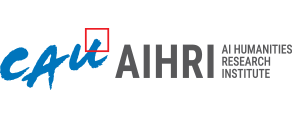Abstract
The era has come for Artificial Intelligence (AI) to write poetry, compose music, and paint pictures. The debate over whether AI should be recognized as an artist and whether its creations should be considered art has become important. However, only the degree of controversy is different, and these debates are not entirely new. Similar debates have been going on since the advent of photography and film. An example is the age-old debate about whether photography is art or not. Ultimately, this issue is about the relationships between art and technology, and the extent to which we recognize the role of technology in art. In this paper, I will first examine the issue of machine-art acceptance, focusing on photography, and then analyze the issue of art acceptance in the age of artificial intelligence. The problem of machine-art will be analyzed, especially focusing on Benjaminʼs visual unconsciousness and Vertovʼs concept of Kino-Eye. In addition, the artistʼs response to the emergence of photography will be analyzed, focusing on the photomontage of the Dadaists.
Focusing on creativity debates, I will then address the question of whether artificial intelligence should be regarded as a creative tool or an autonomous artist. Moreover, the limitations of these problems will be pointed out. It will be pointed out that the artists and art concepts that are the basis for this debate are not beyond the traditional boundaries, and alternatives will be proposed. |

